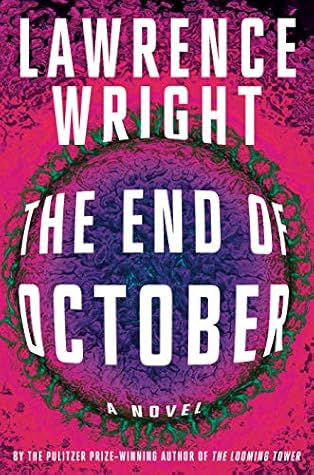More on this book
Community
Kindle Notes & Highlights
“You know what is really hard,” Maria said, her voice cracking. “The hatred I feel for the people who did this. They don’t care how precious are the lives they take. They only want to kill and draw attention to their own grievances. Maybe unconsciously they just want us to feel the way they do. And now I do. I’ve worked my whole life for health and for peace and now I’m full of rage. I can’t stand what they did to my friend—and I despise the person they have made me become.”
Twenty years before, no one thought there were viruses in the oceans, but researchers had since shown that a single liter of seawater contained about 100 billion of them. Curtis Suttle, a marine virologist at the University of British Columbia, collected seawater from oceans all over the world and found that 90 percent of the viruses he examined were totally unknown to man. Yet every virus carried the genetic codes for proteins—meaning that each one had a mission. What that mission was remained a mystery.
In 2018, Suttle and other scientists looked on mountain peaks for evidence of viruses in the free troposphere, the concourse of jet travel just below the stratosphere. They were seeking an answer to a puzzle about the occurrence of nearly identical viruses in widely separated parts of the planet and vastly different environments. Was it possible that viruses—say, in dust or sea spray—could be swept into the atmosphere and transported from one continent to another? The scientists placed buckets on mountaintops in Spain’s Sierra Nevada, nine thousand feet high, and waited to see if viruses would
...more
The legacy of ancient infections might be found in as much as 8 percent of the human genome, including the genes that controlled memory formation, the immune system, and cognitive development. We wouldn’t be who we are without them.
Many novel diseases came to an end as abruptly as they had appeared. Over eons, nature had hurled many threats in our direction, like meteors burning out in the atmosphere before they did any real damage. Then, of course, along came the big one, the one that wiped out the dinosaurs and most of life on earth. You never knew.
DISEASES HAVE A history of stirring up conspiracies. Jews were held responsible for the Black Plague in the fourteenth century, and they were massacred in hundreds of European cities, including two thousand Jews burned alive in Strasbourg, France, on Valentine’s Day, 1349. When severe acute respiratory syndrome (SARS) first appeared, Sergei Kolesnikov, a member of the Russian Academy of Medical Sciences, charged that the new disease was a man-made synthetic virus that combined measles and mumps, although they are both paramyxoviruses and could not be the basis of a coronavirus. This fallible
...more
All the virtues—loyalty, patriotism, courage, honesty, faith, compassion, you name it—are just social constructs, patches to cover the naked barbarism that is at our core.
It was a scientific cult, to be sure, not a pseudo religion, and yet it bore the hallmark of any powerful cult in that it presented itself as the extreme opposite of a prison of thought.
The concept of holiness meant nothing to Henry, but he recognized that Majid lived partly in the supernatural, where the imaginary had the force of the real, and what felt morally weightless to Henry imposed an awful burden on the conscience of his friend.
“Typically, with a pandemic, you have two or three big waves of contagion before it settles down and becomes the normal flu you get every year. That lasts until the next pandemic comes along. So, if this one is like the 1918 flu, the really big wave will hit in October. But of course we don’t know what this one will do.”
Majid and Henry sat on the floor, staring at each other in the dazed amazement that only survivors know, where every detail is newly crisp and each fresh moment is like a crust of ice on a pond, a thin tangible layer between life and death.
All of his life, Henry had been losing the people closest to him. The lesson that he drew is that others cannot protect us. This was what Franz had sought to impart. Like him, Henry had a need to repair the past, which was unfixable.


